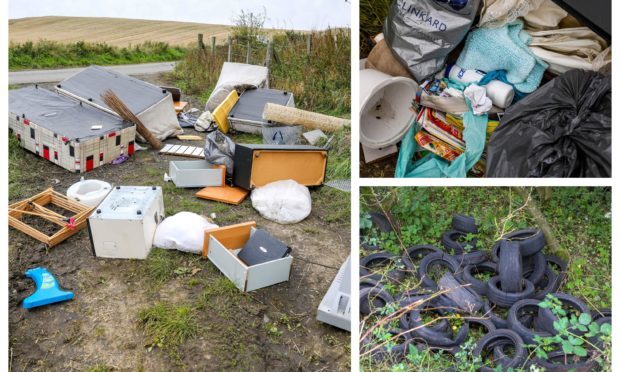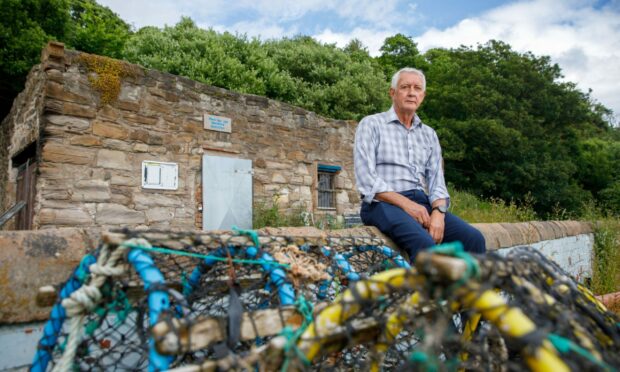Almost two thirds of the fixed penalties issued for fly-tipping or littering in Fife last year went unpaid, it has been revealed.
Of the 136 notices issued across the region, just seven were reported to the procurator fiscal.
Only 73 of the remaining penalties were actually paid, while 130 were dropped due to lack of evidence.
The new figures emerged as the number of fly-tipping incidents dealt with by the council in 2018 soared to a six-year high, with 5,409 reports of illegal dumping.
It means just a tiny fraction – 1.4% – actually resulted in a fine being paid or court action.
The shock figures have prompted a call for local authorities to be given more powers to deal with illegal dumping and littering.
Conservative councillor Gavin Ellis said evidence requirements for reporting and prosecution needed examined.
“I know how this restricts officers who may have spent a fair amount of time investigating an incident of fly-tipping and sifting through waste looking for evidence of its origin – only for the fiscal to say they need the offender to admit it was them that tipped the waste,” he said.
“Ultimately, the issue is one where local authorities can only do so much.
“The whole issue of illegal dumping of waste and the evidence requirements for reporting and prosecution needs to be looked at in detail.”
The Dunfermline North councillor suggested a cross-party working group to look at better ways to address the issue, including the possibility of seeking civil debt recovery for offences. A similar system is already in operation for dog fouling.
Mr Ellis added: “In the short term, I think we need to educate the public more on their responsibilities regarding waste.
“Residents know to do their homework when looking for a reliable tradesman and the quality of their work but are residents aware to check if that tradesman is licensed to take the waste away and where their waste is to be deposited?”
Fife council’s environment spokesman, SNP councillor Ross Vettraino, said: “Yes, the council does drop cases if it believes they can’t be successfully pursued.
“The reason is the procurator fiscal will not issue a complaint if there is not enough evidence.
“That is a stance in which the procurator fiscal service is wholly consistent.”
The Crown Office said it did not want to comment.










